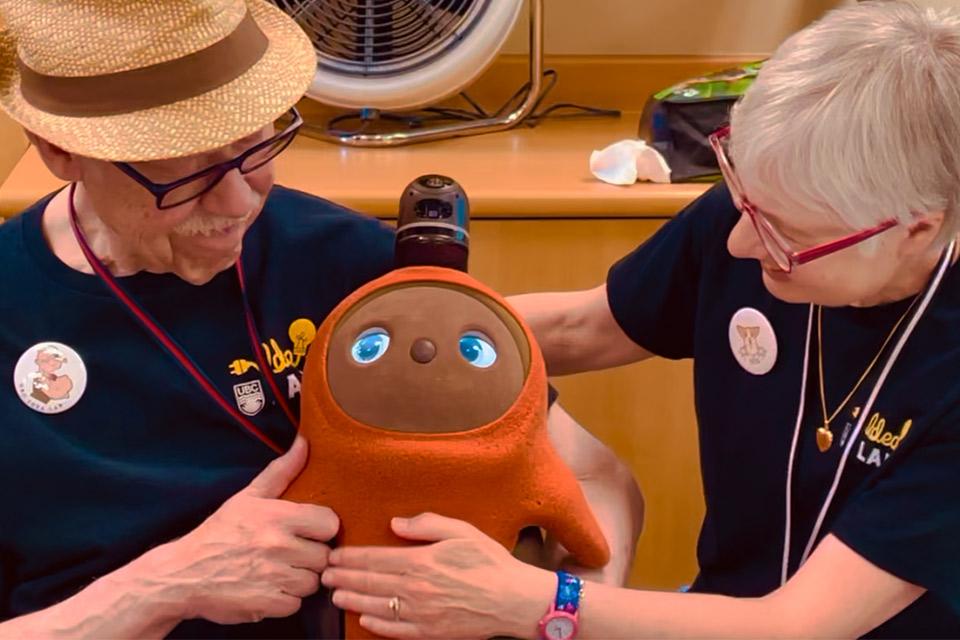
Meet Kiwi and Mango, social robots from Japan. They may look like a cuddly cross between Teletubbies and WALL-E, but what lies beneath is advanced technology. AI enables them to learn, speak, recognize faces and voices, move around and even offer hugs, emulating the warmth of a real pet.
Kiwi and Mango are on loan to UBC for a new study exploring interactions between social robots and older adults. Dr. Lillian Hung, lead researcher, Canada Research Chair in Senior Care and assistant professor in UBC School of Nursing, explains how the study was conceived and what it could mean for elder care.
What sparked your interest in studying social robots?
Dr. Hung: Our research at the Innovation in Dementia & Aging (IDEA) Lab focuses on examining how technology and the environment impact dementia care. In Japan, where isolation and loneliness is a huge problem for older adults, Lovot robots — as their manufacturer calls them — have gained popularity as companions. I wanted to study how these robots interact with older adults and individuals with cognitive challenges in a Canadian context.
My previous research involving PARO, a robotic seal, showed that companion robots could be beneficial for people with dementia. Lovots, with their advanced AI capabilities, could hold even more promise, so I worked with their Japanese manufacturer to bring them to Canada. Canada is now part of an ongoing international study, including Hong Kong and Singapore, that is examining these human-robot interactions.
Please visit the Faculty of Applied Science website to read the rest of the Q+A.
As part of Strategy 16: Public Relevance, we are working to align UBC’s efforts more closely with priority issues in British Columbia and beyond, through dialogue and knowledge exchange.